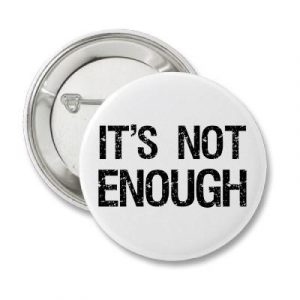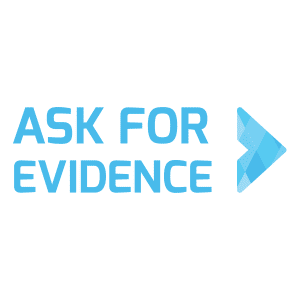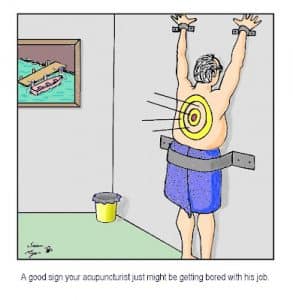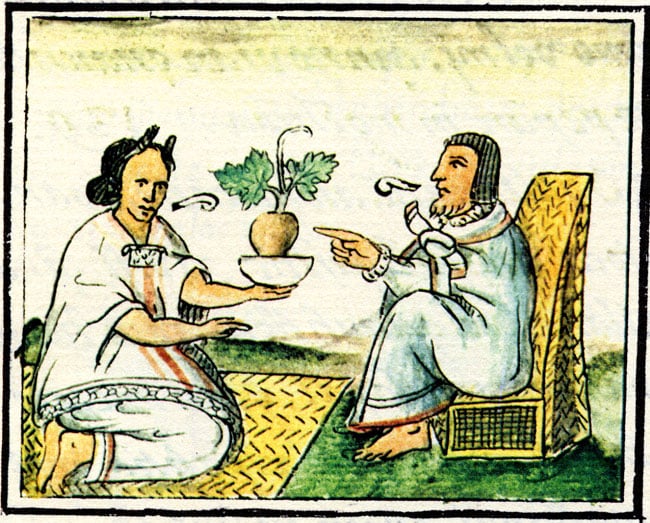 There is no bigger supporter of good care of horses than I. Taking care of horses has been my entire professional life – coming on 4 decades of learning about and caring for the most important animal ever to help humans. And, after all that time, I find myself most frustrated about one thing in the equine industry: the lack of a devotion to getting to the truth.
There is no bigger supporter of good care of horses than I. Taking care of horses has been my entire professional life – coming on 4 decades of learning about and caring for the most important animal ever to help humans. And, after all that time, I find myself most frustrated about one thing in the equine industry: the lack of a devotion to getting to the truth.
When it comes to caring for your horse, there are at least two truths:
- Something is likely to go wrong, at least eventually
- When something does go wrong, you’re going to want to fix it
Those truths come up against a few other truths:
- Some problems fix themselves (the majority, actually)
- Some problems aren’t fixable
- We don’t know enough about some problems to be able to fix them
 Of course, none of those truths stops – or should stop – anyone from trying to help with any of the myriad problems, real or imagined, that can affect horses. And, lots of people do try, at least on some level. Which is a good thing, I think – mostly, anyway.
Of course, none of those truths stops – or should stop – anyone from trying to help with any of the myriad problems, real or imagined, that can affect horses. And, lots of people do try, at least on some level. Which is a good thing, I think – mostly, anyway.
The problem – and this is where the horse industry has let horse owners down – is that it’s not good enough to simply come up with ideas on how to deal with horse problems. There’s certainly a need for new treatments, new medications, new approaches, etc., particularly when the old ones don’t work all that well. But the responsibility that those who come up with such treatments have to horse owners isn’t just to come up with new ideas, it’s also to do testing to see if the new ideas work, and to discard the ideas that don’t.
Unfortunately, few people seem to be doing much of that.
 Honestly, you, the horse owner, aren’t really equipped to try to figure out if some new idea is likely to help your horse. You probably don’t have the resources to pay for the necessary testing, you can’t do the testing on enough horses to come up with a reasonable conclusion, and you probably have other things to do anyway. As such, horse owners mostly find themselves in a “buyer beware” situation when it comes to horse treatments/products/supplements/etc. Somebody comes up with a novel idea, markets it, people flock to it, and it goes away – at least until the next novel idea comes along. Otherwise stated, you pays your money and you takes your chances.
Honestly, you, the horse owner, aren’t really equipped to try to figure out if some new idea is likely to help your horse. You probably don’t have the resources to pay for the necessary testing, you can’t do the testing on enough horses to come up with a reasonable conclusion, and you probably have other things to do anyway. As such, horse owners mostly find themselves in a “buyer beware” situation when it comes to horse treatments/products/supplements/etc. Somebody comes up with a novel idea, markets it, people flock to it, and it goes away – at least until the next novel idea comes along. Otherwise stated, you pays your money and you takes your chances.
Sadly, it’s not supposed to be that way, particularly when it comes to your horse’s health. You’re supposed to be able to have a reasonable amount of assurance that anything that you choose to give to or do to you horse will have at least a reasonable likelihood of doing what that “anything” says it will do. The sad fact is that, mostly, you don’t. People put lots of effort into coming up with new products, and new and different ways to do things, but very little effort is actually put into showing if those things actually work.
 In an ethical world, someone would take pains to prove that a treatment/service/product produced that desired result before it went to market. But in the real world, that’s rarely done, except in the instance of pharmaceutical products that have to endure a long (and expensive) drug approval process before they are released to market. If a product has gone through years of such testing, while you can’t say for sure that the product will be effective for a particular problem, you can at least say that the product is safe, that it’s likely to be safe, and that it contains what the label says that it contains.
In an ethical world, someone would take pains to prove that a treatment/service/product produced that desired result before it went to market. But in the real world, that’s rarely done, except in the instance of pharmaceutical products that have to endure a long (and expensive) drug approval process before they are released to market. If a product has gone through years of such testing, while you can’t say for sure that the product will be effective for a particular problem, you can at least say that the product is safe, that it’s likely to be safe, and that it contains what the label says that it contains.
That’s not the way it’s supposed to be. The right thing – the ethical thing – would be that ALL products and services would be tested before they got sold to people who care about horses. The right thing to do would be to tell you the truth about products and services before you’re asked to given them to your horses.
What’s really frustrating is that there are mechanisms in place to do the work. Scientific testing methods are well understood and, particularly in human medicine, they’re often used. However, with horses (and in small animals, too), testing – showing that a product actually does something – isn’t a requirement before you can bring most things to market.
 Just as frustrating is the fact that if testing is done, the information often gets ignored. Information such as:
Just as frustrating is the fact that if testing is done, the information often gets ignored. Information such as:
- Supplements generally aren’t tested for content, purity, or effectiveness. The claims that are made for them don’t have to be supported by any evidence of effectiveness as long as they don’t make specific claims about treating diseases. That’s why you see products that might, “support,” “assist,” “promote” or other such pablum, but you’ll never see anything like “cure.” That said, here’s on thing you can hang your hat on; if the label says that the product doesn’t prevent, treat, or cure any disease, you should believe the label.
- Stem cells, Platelet Rich Plasma, and a whole bunch of other biological products assert that they offer the “latest” and most “cutting edge” and most “promising” approaches to therapies, particular of the joints, tendons and ligaments. Maybe, but right now, the promise is all they offer. There’s no good body of evidence to indicate that they make any difference at all in your horse’s condition. As it is now, your horse is essentially an experiment using an unproven therapy – and pretty much no one is keeping track of the results. For some, it’s apparently better to have something “new” to do than to worry about doing something that actually does something.
 The modern practices of acupuncture and, “Traditional Chinese Medicine” have essentially nothing to do with how horses were treated in China throughout history, and very little evidence for effectiveness in the treatment of any condition. Nevertheless, people are teaching other people about this modern fiction – even charging them to get “certified” in, private, for-profit “schools.” Plus, when it comes to information that’s already out there – information showing what’s passed off as history is a fiction, the many, many negative studies – is ignored. It’s apparently better to have a different approach – or something else to do – than it is to fess up to the fact that there’s so little “there,” there.
The modern practices of acupuncture and, “Traditional Chinese Medicine” have essentially nothing to do with how horses were treated in China throughout history, and very little evidence for effectiveness in the treatment of any condition. Nevertheless, people are teaching other people about this modern fiction – even charging them to get “certified” in, private, for-profit “schools.” Plus, when it comes to information that’s already out there – information showing what’s passed off as history is a fiction, the many, many negative studies – is ignored. It’s apparently better to have a different approach – or something else to do – than it is to fess up to the fact that there’s so little “there,” there.- Need a horse “chiropractor?” Good luck. Veterinarians may call themselves chiropractors – without degrees in chiropractic. Some chiropractors purport to treat horses – but aren’t trained on animals. There’s lots and lots of evidence – accumulated over decades – that many of the basic tenets of chiropractic don’t hold any water. Does it make any difference insofar as offering services to horse owners? Not so’s you’d notice. It’s apparently better to give someone something to do – and ask them to pay for it – than it is to work hard to show that what’s being done actually does something.
 Lasers anyone? Seems like lots of folks have them, and there are laser “institutes” to train and certify people in their use. But there’s not much real testing going on, and the volumes of information showing that they don’t do anything are never mentioned by those interested in shining lights on your horse. As long as you give the horse enough time to heal, lots of therapies can seem to be effective.
Lasers anyone? Seems like lots of folks have them, and there are laser “institutes” to train and certify people in their use. But there’s not much real testing going on, and the volumes of information showing that they don’t do anything are never mentioned by those interested in shining lights on your horse. As long as you give the horse enough time to heal, lots of therapies can seem to be effective.
I feel badly for horse owners. I really do. You’re sitting ducks. You’re bombarded with information – from all sorts of different sources. Horse shows are supported by products advertising all sorts of wonderfulness. Horse magazines are supported by advertising. There’s rarely a smidgeon of proof – just lots of gloss, glitz, and promise.
So, in an effort to combat all the nonsense, here are nine things that you can insist on in an effort to not get swamped by the glitz.

- Ask for proof before you engage in some therapy. Look for good scientific evidence. It’s not a guarantee that a product or service will be effective, but it’s a good start.
- Don’t accept testimonials as proof. They can be paid for.
- Don’t be persuaded by earnest opinion. A sincere belief in something is persuasive: even charming. Ask for proof.
- Assume something doesn’t work from the start. Be a therapeutic curmudgeon. In fact, a new therapy is far more likely to NOT do anything than it is to do something.
- Search for the name of the treatment or product online, and add words like “review,” “complaint,” or “scam.”
- If a product comes with guarantees or promises, run away. No treatment works every time.
- If something has multiple uses, be wary. If a treatment is said to help sore muscles, reproductive issues, and breathing problems, it’s most likely that it doesn’t do much for any of them. Therapies tend to have specific indications.
- Don’t bite on “natural” products. There’s nothing inherently good about something that’s natural. In fact, a product that’s natural can be both harmful and ineffective. At worst, they might interfere with effective treatments.
- If a product claims that some group (government, pharmaceutical companies, veterinarians) doesn’t want you to know about its product, that product is likely to be a scam.
 The number of unsupported claims in the horse world are too numerous to count. The horse world has let horse people down by letting money (economics) come first: well before ethics and evidence. Unfortunately, you often have to be your own defense against unsupported claims. Ask questions. Don’t just assume that a product or service does what it says it does, or is what it says it is. For example, most horses don’t need any nutritional “support” besides good quality hay, a salt block, and water. For most horse health problems, most of the time, with some time and patience, horses will get better. Much of the time, if you add something to the time and patience, the time and patience end up doing the job anyway. You’ll just have to pay extra.
The number of unsupported claims in the horse world are too numerous to count. The horse world has let horse people down by letting money (economics) come first: well before ethics and evidence. Unfortunately, you often have to be your own defense against unsupported claims. Ask questions. Don’t just assume that a product or service does what it says it does, or is what it says it is. For example, most horses don’t need any nutritional “support” besides good quality hay, a salt block, and water. For most horse health problems, most of the time, with some time and patience, horses will get better. Much of the time, if you add something to the time and patience, the time and patience end up doing the job anyway. You’ll just have to pay extra.







